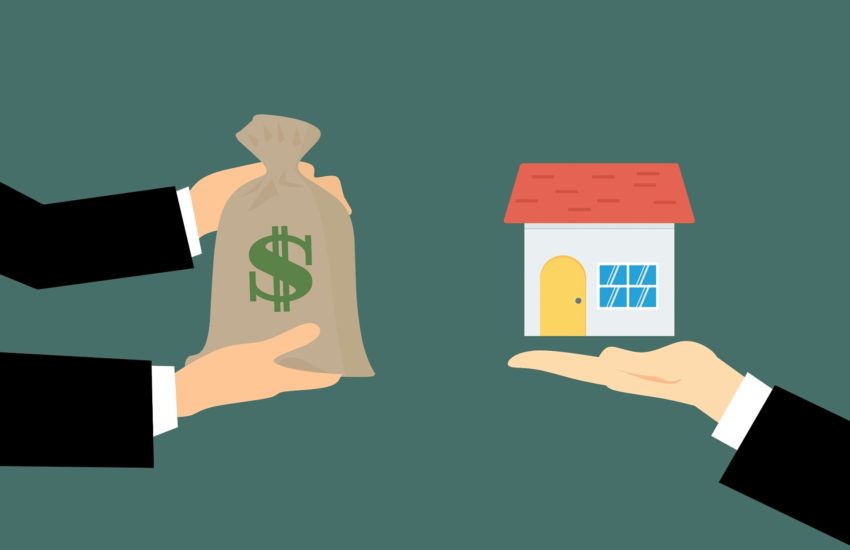Written by: Corey Janoff
This post was originally published on our previous blog website on September 26, 2018 and has since not been revised and/or updated.
Only four posts remaining in the Financial Planning 101 series (including this one)! This week we dive into home buying.
For whatever reason, people feel compelled to be homeowners. I can probably count on one hand the number of people who I have spoken to who don’t want to own a home. Maybe aspirations of homeownership have been ingrained in us since birth. As I have written before, homeownership isn’t all rainbows and sunshine. I do believe that owning your home can provide long-term financial benefits. But rushing into a home when you aren’t ready, or purchasing a more expensive home than you should, can create major financial pitfalls for you.
Today we will dive into some food for thought regarding home buying so you can make smart financial decisions.
When The Time is Right to Buy a Home
Just because your parents say you should buy a home, or because your friends are buying homes, doesn’t mean you should buy a home. You need to be in a stable enough financial position and have a somewhat foreseeable career path in the next handful of years in order for it to make sense.
I don’t want to hear the argument that you are sick of throwing money away at rent or you could get a mortgage for the same cost (or less) as your rent payment. That is an overly simplistic and shortsighted argument.
Renting isn’t throwing money away. It is buying you freedom and flexibility to get up and leave when your lease is up. You could even break the lease with minimal consequence.
Also, there is more cost to homeownership than the mortgage payment. As a renter, you don’t have to worry about any of the home maintenance or repairs (unless you are at fault for breaking something).
You have to live somewhere, so you are going to pay for housing. Even if you own a home outright, you still have to pay property taxes and maintenance expenses.
Short Term
If you are only going to be in a particular location for several years, renting is probably your best option. If you move to a new city, please don’t buy a house right away. Make sure you like the new employer you are working for and the people you are working with. Take a good six months or longer to get familiar with the area so you know what neighborhood you want to be in.
I could give dozens of examples of people who took a new job and immediately purchased a house, only to realize they hate the job and/or location and end up leaving within a couple of years. As a result, they are forced to sell a house they just bought and often have to sell at a discount. Or, they get stuck with two house payments for a while until their first home can sell.
From personal experience, moving is one of my least favorite activities. Selling a home tops moving on the list of things I hate doing. Now you get to do both at the same time! You have to move your junk into storage. You need to keep your house spotlessly clean at all times, because you never know when a prospective buyer may come by to tour the place. You’ll get real estate agents calling you at all hours of the day and evening telling you they have a buyer who is very interested, but they can only come see the house now and will be there in 20 minutes. It’s 8:00pm on a Wednesday and you have to usher your family into the minivan and go roam around for an hour or so until you can get back into your own home. Have fun!
Related blog post: The Cost of Short-Term Home Ownership
Five Years or Longer
Due to the high transaction costs of buying and selling real estate, you likely need to hold onto the property for at least five years in order to recoup those costs. I have seen some estimates of 5% of the property value to purchase and 10% to sell. Between closing fees, taxes, real estate agent commissions, moving costs, furniture, maintenance and repairs to get the home in selling condition, the expenses add up.
The longer you own your home, the more likely it is to appreciate in value, enabling you to recoup those transaction costs. So, if you have a stable job that you like, plan to be in the same area for at least five years, then feel free to start searching for houses!
How Much Home Can I Afford?
The easy answer to this question lies in what the future mortgage payment will be. If you can keep your mortgage payment (including taxes, interest, insurance, and HOA fees) at or below the amount you are paying in rent, then you shouldn’t experience much of a change in monthly expenses.
Many of you are paying less in rent than you plan to pay for a mortgage. So if you expect your future mortgage payment to be $1,000/month greater than your rent payment, do you feel you have an extra $1,000 month available to cover that difference? If so, great!
The reason I am covering home buying in this Financial Planning 101 series after I covered retirement savings, emergency funds and debt, is because I want you to have those things under control before you buy a house. Make sure you are saving adequately for retirement. Make sure your debts are in order. Make sure you have a cushion of cash for emergencies. Once all of those boxes are checked, then you should be able to see how much money you have left each month to go towards a house payment.
If the amount leftover is less than you hoped, then consider this a friendly realty check. You may have to adjust spending in other areas in order to make room for the house you want. Or, lower your expectations.
Down Payment
Before you can buy a house, you will need to save up for a down payment. This demonstrates to the bank you are capable of being somewhat disciplined with your finances and will likely be able to make your mortgage payments.
It is customary to have a down payment of 20% of the purchase price of the home. However, many lenders will enable you to purchase a home with less than 20% down, but you will have to pay an additional monthly fee for mortgage insurance.
If you are a physician, there are special loan programs for you that enable you to put less than 20% down and avoid paying for mortgage insurance. This enables doctors who are newly in practice to purchase a home that they can afford with their new incomes, but due to their smaller incomes in training, weren’t able to save for a down payment.
Regardless of your situation, you should have at least a 5% down payment. If you can’t afford to put 5% down on a property, you shouldn’t be buying that property at this time.
Some General Rules for Home Buying
These are a couple of guidelines to help give you a general starting point for the price range of homes you could be looking at. Remember, less expensive will give you more flexibility, so treat these as upper limits rather than targets to reach for.
Keep in mind, everybody has a unique situation and should crunch the numbers on a case-by-case basis.
Two Times Income
In the book, The Millionaire Next Door, the authors discovered one of the traits of wealthy people was their mortgage balance was generally less than two times their gross income. So if your household income is $200,000/year, your mortgage balance should be less than $400,000 if you want to be able to achieve financial independence within a reasonable time frame.
A bank will approve you for a considerably larger loan. Also, depending on the circumstances, you may be perfectly fine with a loan balance that is 2.5x or even 3x income. If you don’t have any student loan debt, don’t plan to have children, and don’t have expensive tastes, then we could potentially go above the 2x income mark. Also, if your income is highly likely to be considerably larger in the near future, we may be able to stretch things a little bit now.
Using the $200,000 income example with a $400,000 mortgage, the mortgage payment with taxes and insurance will probably be around $2,500/month. The take-home monthly income will probably be around $10,000/month. So if $2,500 is going towards a mortgage, that leaves $7,500 for everything else. Food, childcare, student loan payments, car payments, transportation costs, retirement savings, various insurances, college savings, clothing, entertainment, vacations/travel, home maintenance, charity, gifts, etc.
If you are paying $1,000/month to student loans, $500/month for a car, $1,500/month for daycare, $1,500/month towards retirement (on top of a 401k at work), $1,000/month for groceries for the family and $500/month for various insurances, that only leaves $1,500/month for everything else.
You’re living comfortably and nobody will feel sorry for you, but you can’t exactly spend freely. If you increase your mortgage payment, that will further reduce the amount of flexibility you have with your monthly expenses.
20% of Income
If you keep your mortgage payment below 20% of your gross monthly income, that should enable you to still accomplish your other financial goals. Now, these two rules of thumb are linked mathematically. If your initial mortgage balance is less than 2x your gross income, your mortgage payment will be less than 20% of your gross income.
Again, these are merely some general guidelines to help aid you in your housing search. If you have a larger student loan payment and four kids, you’re not going to be able to spend as much on a house. Sorry. Everyone gets dealt a different hand of cards. Some people have a more financially attractive hand than others.

Making Sacrifices
Life is about making sacrifices. You can’t have everything you want, especially all at once. It is important to prioritize your financial goals and structure your financial plan so you can achieve the important things first and foremost.
Since housing is the largest expense most people will have, it can create the biggest financial problems for people if not handled carefully. Spending too much on a house, or jumping into a house too soon can create a drag on one’s finances that can be difficult to overcome.
If you are wanting to spend more on a nicer house, it means you will have to cut back on spending in other areas to make room for the larger house payment. That may mean less vacations, or staying in on Saturday nights instead of going out. It may mean you can’t send your kids to private school.
The goal isn’t to keep up with Mr. and Mrs. Jones. The goal is to do what is appropriate for you and your financial circumstances.
Related Posts:




